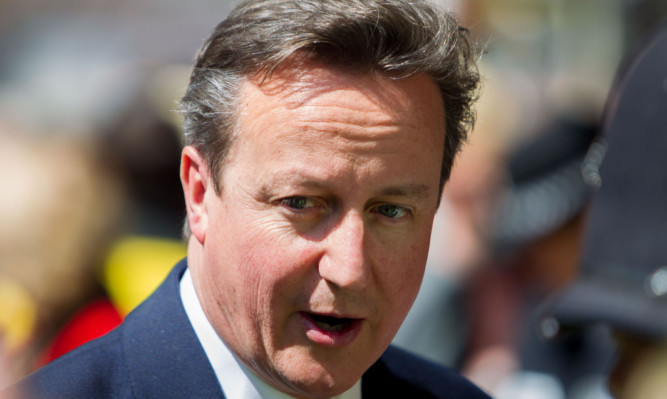David Cameron has poured cold water on suggestions that British ground forces could take on Islamic State (IS) in Syria and Iraq.
The Prime Minister has indicated he wants to expand the UK role in the battle against extremists to include airstrikes in Syria as well as neighbouring Iraq.
But he insisted the countries themselves should provide the “boots on the ground”.
The comments, at a press conference after delivering a speech on tackling extremism, followed a warning from former armed forces chief Lord Richards that the current effort against IS was “woefully insufficient”.
Asked if he thought “sooner or later tanks are going to have to roll, there is going to have to be troops on the ground”, the peer replied: “I suspect my bones are telling me that.”
Home Secretary Theresa May declined to rule out ground forces this morning, while stressing that the “debate” was over extending airstrikes and parliamentary approval would be needed for any such move.
But Mr Cameron said: “Of course if we are going to succeed in defeating Isil either in Iraq or Syria there will need to be boots on the ground. But they should be Iraqi boots, Syrian boots.
“What we need is an Iraq that is capable of governing its own country, and Iraqi government that is capable of governing its own country.
“The same goes in Syria. It is more complicated because the government of Syria, in the form of Bashar Assad, is the chief recruiting sergeant for Isil because of his butchery of his own people.”
It emerged last week that British pilots embedded with US forces have carried out bombing raids in Syria – despite the Commons having voted against such action.
After releasing the details under freedom of information rules, the Ministry of Defence said no pilots were currently engaged in the operations.
Mr Cameron – who has urged media to use the term Isil or Daesh rather than IS – said shoring up countries that were in danger of becoming “broken” was crucial.
He conceded that extremists now controlled what was “effectively a state taking in parts of Iraq and Syria”.
Mr Cameron said he agreed with UN secretary general Ban Ki Moon that “missiles may kill terrorists but good governance kills terrorism”.
